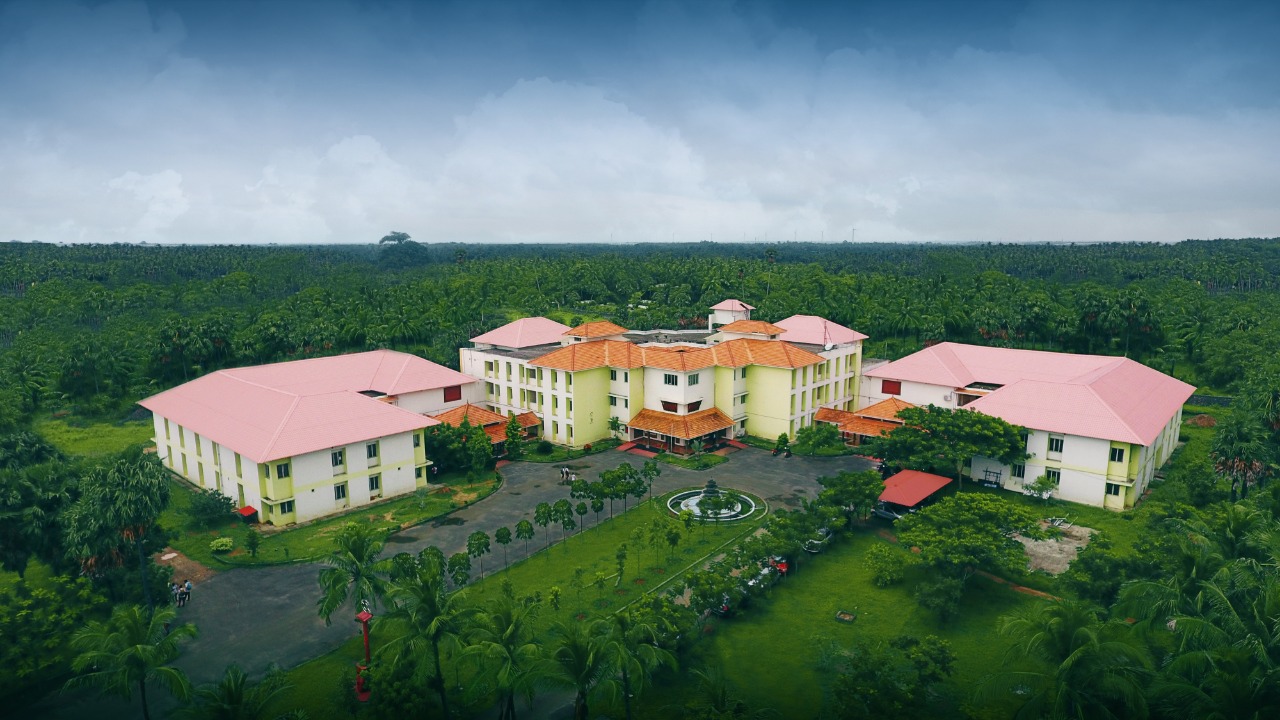
The Department of Artificial Intelligence and Machine Learning (AIML) was established at the Ahalia School of Engineering and Technology in Palakkad in the year 2024. This department provides excellent educational opportunities and is renowned for its exceptional teaching quality. The department offers a Bachelor of Technology (B.Tech) degree in AIML which is designed to fulfil the increasing demand in the industry for persons who possess a combination of theoretical knowledge and practical experience. The program focuses deliberate emphasis on achieving an appropriate balance between these two aspects. The program is meticulously crafted to guarantee a thorough comprehension of algorithms, techniques, and the strategic incorporation of acquired data in the creation of AI-driven systems. Through the combination of practical and theoretical methods, students can investigate the applications of AIML and improve their proficiency in optimizing models and solutions. The B. Tech in Artificial Intelligence and Machine Learning program at ASET provides a thorough education that equips students with the necessary skills for prosperous employment in the field of artificial intelligence and machine learning.
VISION:
To cultivate highly ethical and innovative AI and ML professionals via superior education, proficiency-based learning, advanced training, and impactful research, promoting sustainable technological advancements with competence and integrity
MISSION :
1. To equip students with advanced AI and ML skills to solve evolving complexities, driving sustainable and high-quality livelihoods.
2. To foster a responsive learning space that encourages research, innovation, and entrepreneurial thinking in AI and ML, empowering students to create impactful solutions.
3. To nurture ethical and proficient AI and ML professionals who contribute to societal welfare with integrity and responsibility.
PROGRAM EDUCATIONAL OBJECTIVES [PEO]
PEO 1:
Graduates will develop a solid foundation in AI and ML through a comprehensive curriculum and skill-based learning, enabling them to analyze, design, and implement intelligent solutions for real-world challenges.
PEO 2:
Graduates will cultivate an innovative mind-set, entrepreneurial spirit, and problem-solving abilities, equipping them to excel in industry roles, establish start-ups, or pursue higher education and research in AI and ML.
PEO 3:
Graduates will uphold ethical AI practices, responsibly leveraging AI and ML to create
sustainable, inclusive solutions that enhance quality of life, while demonstrating leadership and integrity in their careers.
Programme Outcomes (POs)
PO 1: Engineering knowledge: Apply the knowledge of mathematics, science, engineering fundamentals, and an engineering specialization to the solution of complex engineering problems.
PO 2: Problem analysis: Identify, formulate, review research literature, and analyze complex engineering problems reaching substantiated conclusions using first principles of mathematics, natural sciences, and engineering sciences.
PO 3: Design/development of solutions: Design solutions for complex engineering problems and design system components or processes that meet the specified needs with appropriate consideration for the public health and safety, and the cultural, societal, and environmental considerations.
PO 4: Conduct investigations of complex problems: Use research-based knowledge and research methods including design of experiments, analysis and interpretation of data, and synthesis of the information to provide valid conclusions.
PO 5: Modern tool usage: Create, select, and apply appropriate techniques, resources, and modern engineering and IT tools including prediction and modeling to complex engineering activities with an understanding of the limitations.
PO 6: The engineer and society: Apply reasoning informed by the contextual knowledge to assess societal, health, safety, legal and cultural issues and the consequent responsibilities relevant to the professional engineering practice.
PO 7: Environment and sustainability: Understand the impact of the professional engineering solutions in societal and environmental contexts, and demonstrate the knowledge of, and need for sustainable development.
PO 8: Ethics: Apply ethical principles and commit to professional ethics and responsibilities and norms of the engineering practice.
PO 9: Individual and team work: Function effectively as an individual, and as a member or leader in diverse teams, and in multidisciplinary settings.
PO 10: Communication: Communicate effectively on complex engineering activities with the engineering community and with society at large, such as, being able to comprehend and write effective reports and design documentation, make effective presentations, and give and receive clear instructions.
PO 11: Project management and finance: Demonstrate knowledge and understanding of the engineering and management principles and apply these to one’s own work, as a member and leader in a team, to manage projects and in multidisciplinary environments.
PO 12: Life-long learning: Recognize the need for, and have the preparation and ability to engage in independent and life-long learning in the broadest context of technological change.
PROGRAM SPECIFIC OUTCOME [PSO]
PSO 1:
Graduates will be able to apply core AI and ML principles, computational techniques, and modern tools to develop intelligent, scalable, and sustainable solutions for real-world challenges across various domains.
PSO 2:
Graduates will demonstrate innovation, entrepreneurial thinking, and ethical responsibility in designing AI-driven applications, contributing to technological advancements, societal well-being, and sustainable development.
Consolidated Course Outcomes (COs)


